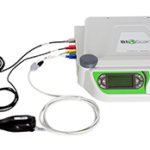
Hypoglycemia is low blood sugar. Hypoglycemia is not a disease, but a symptom. The brain and central nervous system derive their support from adequate supplies of blood sugar. Low blood sugar effects normal function of the brain and nervous system likely causing a range of problems from fatigue to convulsions (rare).
Possible symptoms of hypoglycemia:
- Sweating
- Fatigue
- Brain fog
- Moodiness
- Headaches/Migraines
- Mental confusion
- Depression
- Inner trembling
- Sleepiness
- Manic behavior
- Digestive issues
- Irritability
- Cold sweats
- Dizziness
- Alcoholism
- Arthritis
- Underachievement
- PMS
- Allergies
- Anxiety/Panic attacks
- ADD/ADHD
A common low blood sugar symptom is anxiety which affects over 40 million Americans and can be difficult to treat. Other possible causes for anxiety range from caffeine use, dehydration, aspartame, MSG, food additives, nicotine, marijuana abuse, sugar consumption, traumatic events, and more. GABA is helpful, along with eating healthy unprocessed foods, staying hydrated, avoiding caffeine, sugar, and eating every three hours.
Often a blood glucose test doesn’t show hypoglycemia, however if you’re experiencing three or more of the above symptoms you may have some degree of low blood sugar.
One of the best ways to manage blood sugar is to eat every three hours having three meals and two to three snacks per day. Eating frequently also is a corner stone for weight loss! Avoid sugar and alcohol. Supplements like magnesium, Chromium, and B vitamins are helpful. Keep in mind hypoglycemia can lead to diabetes, so managing your blood sugar is important for your long-term health.
For more suggestions on natural ways to manage blood sugar call Trish at 303-257-0058


